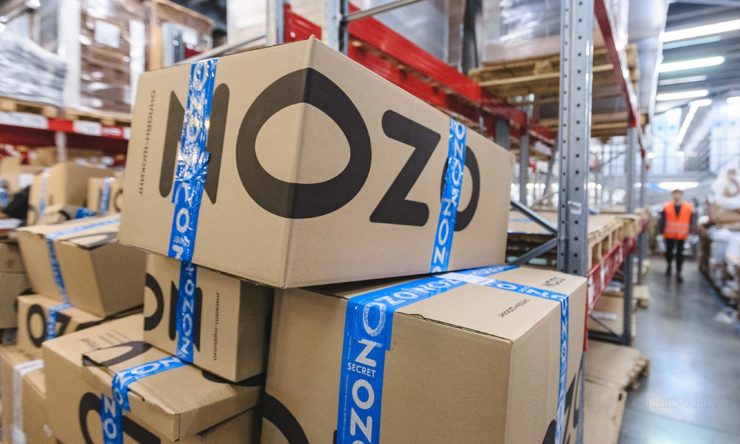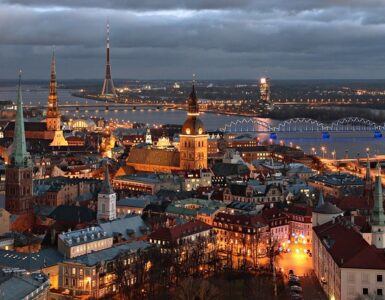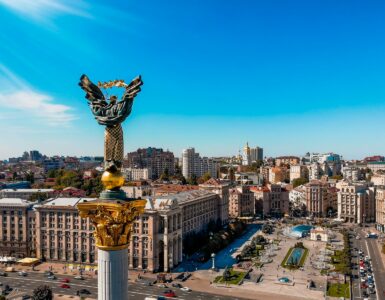MARKETPLACES
Sales of sports goods increased 3.5 times at only marketplace Ozon in the first five months of 2022 compared to the same period of a year before. And the sales jumped two-fold at the rival marketplace Wildberries in the first quarter of 2022 year-on-year in volumes. Revenues of both companies tripled in the first half of the year compared to a year ago, driven by the exodus of major Western brands like Adidas, Nik, and Reebok which forced consumers to turn to online shopping and other brands. [Source: Vedomosti]
The Russian government designed new rules for marketplaces to help prevent potential market manipulation. Thanks to their growing popularity, marketplaces can affect prices and reduce a choice of goods and services, Russia’s Premier Minister Mikhail Mishustin said. [Source: Business Magazine]
Russian online shoppers are picky: 44% of Russian consumers would quit online marketplaces if they were forced to pay for delivery of a good, while 32% would do it if they had to pay for return of goods. The biggest problems of marketplace clients are the absence of a good with needed characteristics (36% of the respondents surveyed), delivery delays (31%), damaged or insufficient package (18%), and the difference between the actual product and the one displayed online (15%), according to a survey. [Source: RB]
HEALTHCARE SERVICES ON THE RISE
Russian online health checkup and corporate medical insurance service Checkme entered Georgia’s market, in addition to Armenia and Kazakhstan where the company has expanded earlier. Checkme plans to continue expansion to another six countries by the end of 2022. [Source: RB]
Demand for online psychological support services from corporate clients increased by five times in the first half of 2022 compared to the same period last year, according to a survey of 200 human resources (HR) managers of Russian companies. Nearly 50% of companies have or will have special psychological support programs for their employees, following the start of the war in Ukraine and an economic turbulence in Russia. [Source: Kommersant]
CRYPTO
Russian government financial watchdog Rosfinmonitoring’s top official said the agency started to use software to monitor cryptocurrency transactions, though with limited capabilities. In the future, Rosfinmonitoring aims to be able to identify all participants of any blockchain deal regardless of their jurisdictions. [Source: Reuters]
Chairman of the Financial Market Committee of the State Duma, The Russian Parliament Lower Chamber, Anatoliy Aksakov proposed the establishment of a crypto exchange in Moscow. The project will be possible after the Duma will accept a cryptocurrency legislation in autumn this year. [Source: TASS]
GOVERNMENT INCENTIVES
Investors in tech startups launched by high school students will get compensation for half of their investments through state subsidies. A Russian government’s decree envisages that nearly $50 million will be allocated for these subsidies in the federal budget for 2022-2024. [Source: The Russian Government]
A new federal program will offer free two-year coding courses to all students of Russian schools. IT training, accessible both in online and in person, will be supplemental to school mathematics and computer science curriculum. [Source: The Russian Government]
KAZAKHSTAN
The Kazakhstan government plans to design a digital code to oversee the development and implementation of hi-tech technologies in the country. The code, a draft of which is to be completed by December 2022, will regulate personal data, digital signature, artificial intelligence, blockchain, big data, and other IT-related fields. [Source: Orda]
IT GIANTS AMID SANCTIONS
Russian Internet giant Yandex is forced to reduce its global presence and expansion as a result of Western sanctions against some company’s top executives after Russia’s invasion of Ukraine. At home, Yandex needs to follow a curved path to balance between the censorship demands of the Kremlin regarding the cover of the war and the interests of users. [Source: The New York Times]
Singapore’s cybersecurity company Group-IB Global Private Ltd transformed its Russian subsidiary Group-IB into a fully financially and structurally independent business unit that will be governed by local management with no affiliation with the parent company. Experts say the move will help protect the global company against possible Western sanctions and keep business operations both in Russia and outside the country running. [Source: Kommersant]
STARTUPS
Russian biggest social network VK and the country’s biggest state-run telecommunications operator Rostelecom have reportedly joined Russia’s biggest mobile provider MTS in a race to purchase the nation’s biggest online cinema ivi. ivi’s cost is up to $1.2 billion, according to analysts. [Source: The Bell]
Smartway, a Russian business trip service, has acquired online booking service A&A Business Travel Services Holding for a sum estimated from $3 million to $5 million. Smartway became interested in a purchase of a booking service after Booking.com had left the Russian market due to Russia’s war in Ukraine. [Source: Kommersant]
SOFTWARE
Russian software group of companies Astra is planning an initial public offering (IPO) at the Moscow exchange with a capitalization projected to be $300 million. Astra develops its own operating system Astra Linux and various software that are widely used by state companies and government bodies. [Source: Vedomosti]
In summer 2022, 60% of laptops imported to Russia didn’t have a pre-installed operating system compared to 40% in the spring and 25% at the start of the year as retailers are looking for ways to curb prices.The trend is likely to lead to an increase in the number of counterfeit systems. [Source: Kommersant]






Add comment